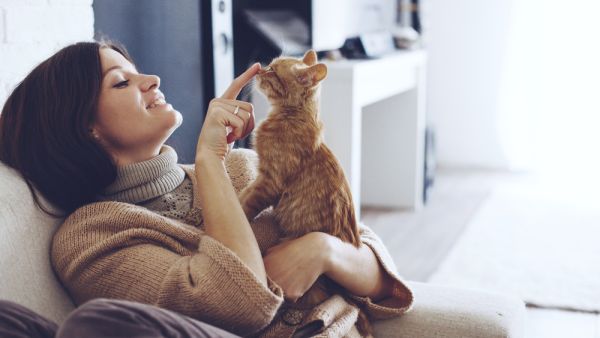Cats are 'very godlike', which make them more likely to be owned by atheists than churchgoers as a substitute for religion, according to a new study.
People who worship more than once a week own 1.4 cats on average, compared to the non-religious who have an average of two, according to research by the University of Oklahoma.
Researcher Samuel Perry said that he carried out the study of more than 2,000 people because he felt that some of what people sought in religion was also what they sought in pets.
'We own pets because we love their company and the special interaction they provide for us,' Professor Perry, whose study appears in the Journal for the Scientific Study of Religion, told the Times.
'In some ways, pets are actually substitutes for human interaction.'
People heavily connected to their faith or church already have plenty of 'social interaction' which means they do not need a feline.
Cats are 'very godlike' and act as a substitute for people without this influence in their life.
Their constant need for affection on their terms infuriates owners who desperately try to win their love.
This means owners 'end up serving [cats] a lot' and makes the pets 'very godlike in those characteristics', according to the pet-free Christian.
Writer Christopher Hitchens said if you feed a dog, they think you are God, while if you do the same to cats, they 'draw the conclusion they are gods'.
The atheist went on to say: 'Cats may sometimes share the cold entrails of a kill with you, but this is just what a god might do if he was in a good mood.'
Ancient Egyptians held cats in high regard and the penalty was death by 450 BC.
Goddess Bastet, commonly depicted as a cat or a woman with a feline's head was among the most popular deities of the Egyptian pantheon.
This article has been adapted from its original source.








